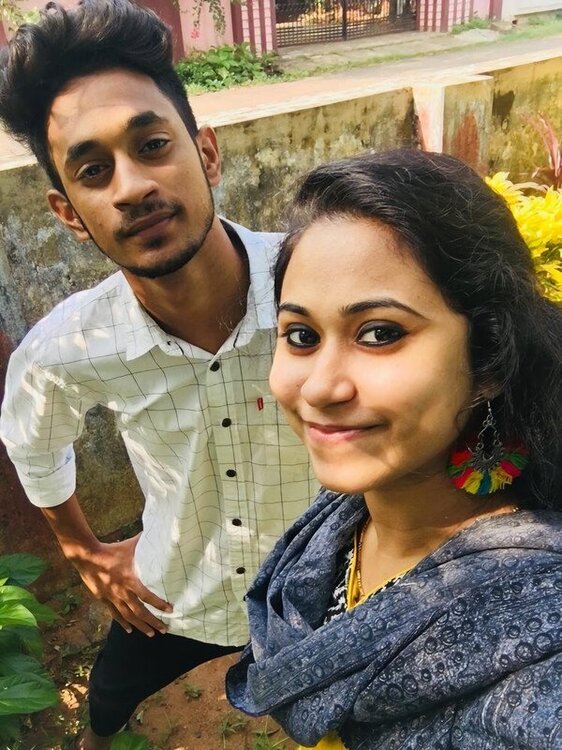In the shadowy corners of the internet, where anonymity reigns and boundaries blur, is there a persistent undercurrent of content that exploits and objectifies? The proliferation of Desi MMS videos, showcasing intimate moments of individuals, raises serious questions about consent, privacy, and the ethical responsibilities of both content creators and consumers.
The digital age has ushered in an era of unprecedented connectivity, yet it has also created fertile ground for the dissemination of explicit material, often without the consent of those depicted. Search engine results and online platforms are awash with content categorized under terms like Desi MMS, Indian Sex MMS, and Leaked Porn. This content often features individuals, including young women and girls, captured in intimate situations, their privacy irrevocably violated and their images circulated across the globe. The accessibility of this material is a stark reminder of the dark side of the internet, where exploitation and the violation of personal boundaries can be rampant.
The rise of this type of content is not merely a technical issue; it’s a reflection of deeper societal issues. The objectification of women, the commodification of intimacy, and the voyeuristic desires of some segments of the population all contribute to the demand for and proliferation of these videos. Furthermore, the lack of effective regulation and enforcement in many online spaces allows this type of content to thrive, making it difficult to remove or control its spread. Legal recourse for victims can be complex and often insufficient to stem the tide.
The individuals featured in these videos are often subjected to a cascade of harms. Their images are shared without their consent, their privacy is invaded, and they may face social stigma, harassment, and even threats. The psychological impact of having one’s most private moments exposed to the world can be devastating, leading to anxiety, depression, and a profound sense of vulnerability. Moreover, the perpetuation of this content can contribute to a culture of sexual violence and exploitation.
Consider the hypothetical scenario of a young woman, let's call her Priya, whose intimate moments are captured and shared without her consent. The fallout could be catastrophic. Her reputation could be tarnished, her relationships damaged, and her future opportunities jeopardized. The emotional trauma could be profound and long-lasting, leaving scars that may never fully heal. This scenario, unfortunately, is a reality for many individuals whose privacy has been breached.
The platforms that host and distribute this content often cite freedom of expression and the complexities of moderating vast amounts of user-generated material as justifications for their inaction. However, these arguments ring hollow when weighed against the real-world consequences of allowing the dissemination of non-consensual intimate images. These platforms have a moral and ethical obligation to protect their users and to actively combat the exploitation that thrives on their sites. This includes implementing robust content moderation policies, promptly removing infringing material, and cooperating with law enforcement agencies to identify and prosecute those responsible for creating and distributing such content.
The legal landscape surrounding the distribution of non-consensual intimate images is evolving, but it remains fragmented and inadequate in many jurisdictions. Laws vary widely, and enforcement is often hampered by jurisdictional challenges and the anonymity afforded by the internet. The need for stronger legislation and more effective enforcement is critical. This includes criminalizing the creation, distribution, and possession of non-consensual intimate images, as well as imposing stricter penalties on those who profit from such activities.
Education and awareness are also crucial in addressing this problem. People need to be educated about the ethical implications of consuming such content and the potential harms it can cause. This includes teaching young people about consent, healthy relationships, and the dangers of online exploitation. Schools, community organizations, and parents all have a role to play in promoting a culture of respect and responsibility online. Furthermore, media literacy programs can empower individuals to critically evaluate the content they encounter online and to recognize and report harmful material.
Ultimately, combating the proliferation of Desi MMS and similar content requires a multi-faceted approach. This includes legal reforms, technological solutions, platform accountability, education, and a fundamental shift in societal attitudes towards privacy and consent. This is not merely a technical problem; it is a moral imperative. It demands a collective effort to protect the vulnerable, to uphold the principles of consent and privacy, and to create a safer and more ethical online environment for everyone. It necessitates that we recognize the human cost of this exploitation and that we take concrete steps to prevent it.
The availability of this content online serves as a stark reminder of the potential for exploitation and abuse in the digital age. It underscores the importance of protecting privacy, promoting consent, and holding those who create, distribute, and profit from non-consensual intimate images accountable. The fight against this type of exploitation is an ongoing struggle that requires vigilance, collaboration, and a unwavering commitment to justice. It calls for a societal reckoning, a recognition of the profound harms caused, and a determination to create a more ethical and responsible online environment.
The term Desi MMS is often used as a search term to access content featuring individuals of South Asian descent. This reveals a disturbing trend of cultural appropriation and exploitation. It is not just the violation of privacy that is at issue, but also the cultural context and the potential for the reinforcement of stereotypes and biases. The intersection of technology, culture, and gender makes this issue all the more complex and demands careful consideration.
The anonymity provided by the internet can embolden individuals to engage in harmful behavior. The lack of accountability can exacerbate the problem, allowing for the unchecked spread of content that violates privacy and harms individuals. Combating this requires innovative approaches, including the development of technologies that can detect and remove non-consensual intimate images, as well as strengthening the legal frameworks that govern online behavior. Furthermore, fostering a culture of online responsibility is crucial. This includes encouraging individuals to report harmful content, to engage in respectful dialogue, and to be mindful of the impact of their online actions.
The focus on Desi MMS also highlights the global nature of this issue. The content can be viewed and shared across borders, making it difficult to regulate and enforce laws. This underscores the need for international cooperation and collaboration. This includes sharing information about harmful content, coordinating investigations, and harmonizing laws to create a more effective response to this global problem. The challenge requires a united front, with governments, law enforcement agencies, and technology companies working together to protect individuals and to combat exploitation.
The rise of artificial intelligence (AI) also plays a role in this evolving landscape. AI is being used to create increasingly realistic deepfake videos, which can depict individuals in intimate situations without their consent. This represents a dangerous new development that poses a significant threat to privacy and personal security. Combating this requires the development of AI-powered tools that can detect and flag deepfake videos, as well as strengthening legal frameworks to address the creation and distribution of this type of content.
This type of content underscores the vulnerabilities in our digital lives. The ease with which intimate images can be captured, shared, and circulated online creates a constant risk of exploitation. The challenge is to find a way to balance the benefits of the internet with the need to protect individual privacy and to prevent abuse. It is a difficult task that demands innovation, collaboration, and a commitment to ethical principles. The future depends on our ability to address these challenges and to create a digital environment that is safe, respectful, and responsible.



